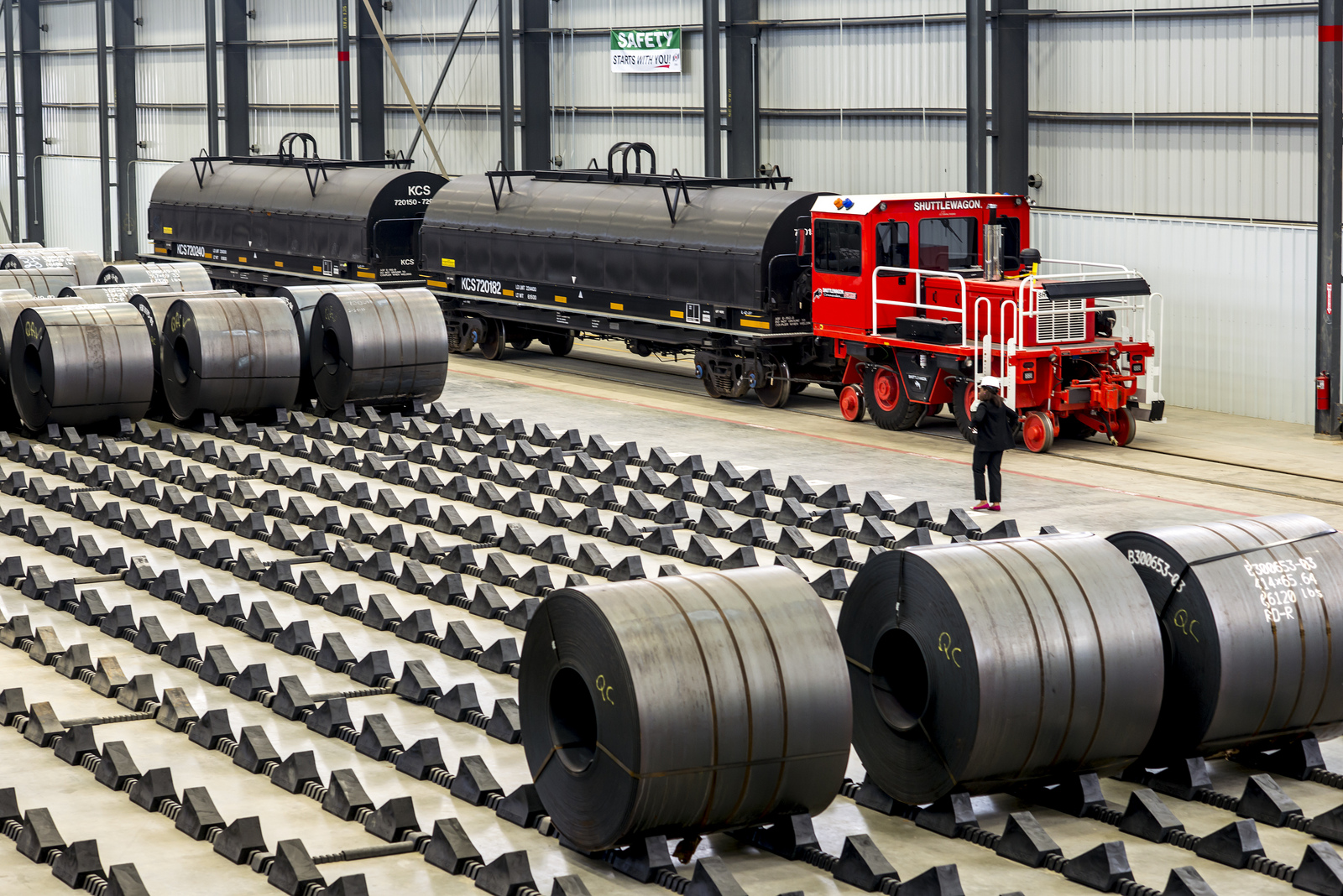May 2013, Vol. 240, No. 5
Features
United Metallurgical Company Opens U.S. Pipe Plant

Russian firm United Metallurgical Company (OMK) held a grand opening ceremony for its new Houston tube pipe plant on Feb. 26 with more than 150 people, representing construction companies, suppliers of equipment, managers and plant employees on hand.
“OMK tube is our first plant on American soil, and was built in a very short period of time, even by American high-tech criteria – nine months only,” said OMK President Vladimir Markin who traveled from Russia for the event. “From the very beginning, we were sure that our Texas project would be successful due to our experience in building and developing new plants.”
The plant, which went in service Dec. 19, has a rated capacity is 200,000 tons of carbon and low-alloy casings and tubing. It is expected to reach full capacity by July.
Pipes produced in Houston will have outside diameters between 23/8 inches and 7 inches with wall thicknesses between 0.118 inch and 0.5 inch; pipe length will range from 20 feet to 60 feet. The facilities include four threading lines, two upsetting lines and two hydraulic testing units. Much of the plant’s equipment was manufactured by Japan’s Nakata. Steel used to make the pipes is sourced from local steel producers, the company said, with the possibility of steel being delivered from the Casting and Rolling Complex (Vyksa) – a part of OMK – under consideration for the future. Total investment in the facility, located on 75 acres, will be about $97.6 million by 2015.

OMK came to the production site in 2011, having purchased OCTG-owned Tubal Solution pipe-finishing mill, which had been in operation since 2006. The new plant has access to rail and is located just 3 miles the Tubular Solutions facility.
“This implies widening the country’s (Russia’s sales markets due to establishing new production facilities in the regions abroad with steady demand,” said Markin. “The U.S. market is very important for OMK. Our own facilities for production and finishing of casings and pipes for main pipelines, as well as established distribution network, will enable OMK to widen and strengthen its positions on the North American market.”
During the past seven years, OMK has invested more than $5 billion in the development of existent production facilities and construction of new plants, having supplied pipes to major gas and oil transportation projects that include the North Stream and South Stream in Europe and those in central Asia and China, as well as all of the big projects in Russia and CIS countries. In 2004, the company began delivering pipes to the U.S. oil sector.
Borusan Announces Texas Pipe Mill
Turkish pipe and tube maker Borusan Mannesmann “virtually” broke ground on a $150 million, 300,000-ton-per-year pipe mill near Baytown on April 2 – the company’s first plant in the United States.

The ceremony, which took place 35 miles to the west at the Omni Hotel in Houston, featured a big-screen hookup showing the currently empty 500-acre site. The facility is expected to be fully operational in 2014 and employ 250 workers.
“Positioning ourselves as a local industry will be a very strategic move,” said Borusan Chairman A. Ahmet Kocab?y?k during brief opening remarks. “It will be the start of a new era of relations between the U.S. and Turkey.”
In support of the project, the Texas Enterprise Fund will provide Borusan with $1.6 million. The fund, created by the state Legislature in 2003, has become one of Texas’ most competitive tools to recruiting businesses.
Borusan CEO Buddy Brewer Jr. cited the state and Chambers County’s pro-business environment among the reasons his company decided on the location. He also pointed to the advantage of having easy access to rail, barge, surface water and an abundance of electricity.
Of the company’s decision to come to the U.S., Brewer said, “In simplistic terms, the industry is driven by rig count,” he said. “A mill in the U.S. has access to 60% of the wells going forward.”





Comments